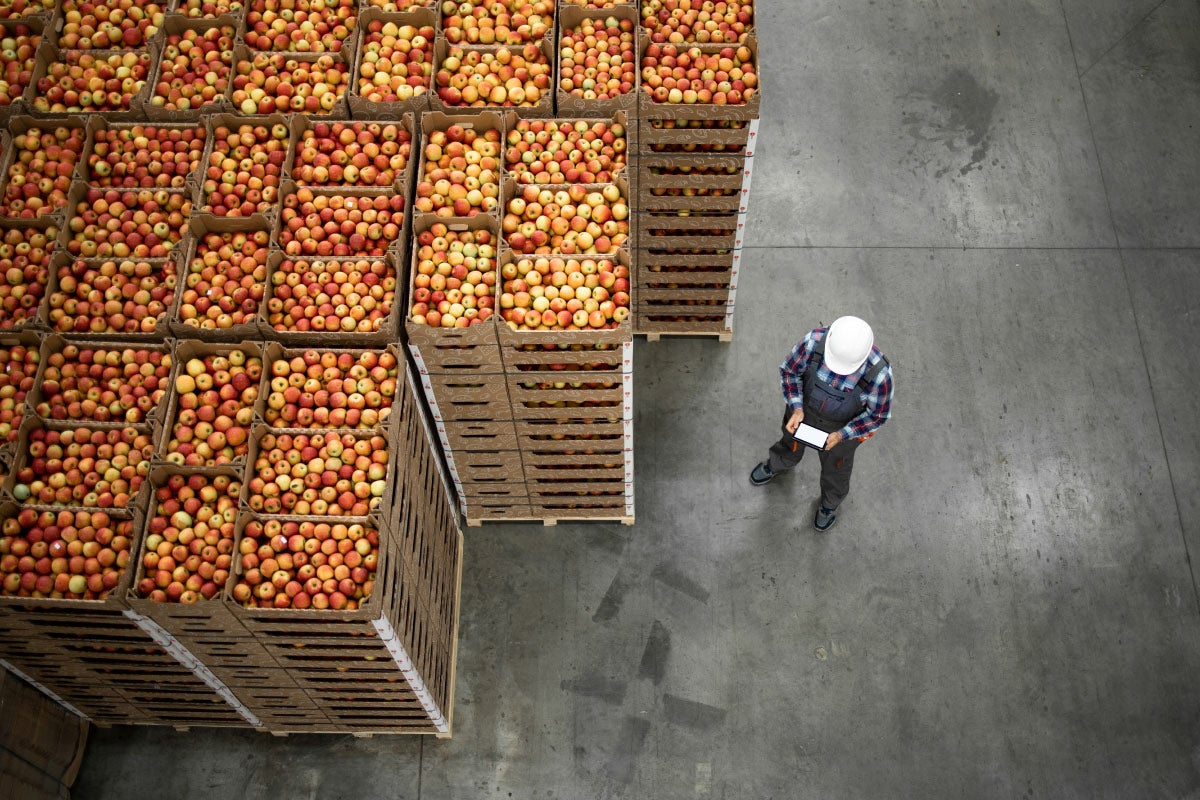The cost of inefficiency: how siloed food supply chain data holds you back
The journey from farm to fork is complex, with food supply chain issues ranging from weather impacts and tariff restrictions to production facility specialization and storage and transport of perishable goods. At every step of the process, inefficiencies or poor information flows raise the risk of costly delays and hamper compliance efforts.
The challenges multiply when critical information is siloed throughout the supply chain.
Successful brands are upgrading information flow with modern technology solutions to streamline operations, maximize efficiency and support scalable growth and compliance.
Why are information silos problematic for supply chains?
When information is restricted between supplier partners or departments, it creates significant pain points, including:
- Operational inefficiencies: Manual processes (like decentralized order management across different channels that require manual data entry or system integrations not tailored to your unique needs) are both time-consuming and prone to errors. Outdated practices make it difficult for suppliers to scale or adapt quickly to changes in consumer demand.
- Poor data flow: Limited visibility into inventory levels, product movement and demand forecasts blocks proactive decision-making. When there’s not a timely flow of data across systems, suppliers struggle to make informed choices about production and distribution.
- Costly delays: Shipping errors, inventory shortages and communication breakdowns can result in delays that impact product quality, food freshness and customer satisfaction. This can not only lead to lost revenue, but damage brand reputation.
- Compliance challenges: Delays in meeting trading partner requirements – or adapting to changes – can sacrifice revenue and damage relationships. In addition, swift recall compliance requires end-to-end visibility into your supply chain.
- Financial impact: Siloed supply chains lose you money. Outdated practices, wasted resources and missed opportunities increase operational costs and reduce profitability.
How can technology improve supply chain efficiency?
Modern technology solutions support a seamless, efficient supply chain. Upgrades offer key benefits, including:
- Process automation: An automated solution like SPS Commerce Fulfillment streamlines order processing, reduces human errors, supports business growth and improves customer satisfaction. It also enhances efficiency via seamless integration with your ERP and can be customized to fit your unique business needs.
- Improved collaboration: Product data solutions like SPS Assortment can help you keep up with trading partner requirements and update your information without tracking and executing changes by hand. You’re able to provide the product details trading partners and consumers expect without the hassle of manual processes.
- Enhanced data flow: When you centralize your data, you can scale processes to work with bigger amounts of data between more users and enable more types of analysis. Timely, accurate data also leads to better forecasting, inventory management and decision-making.
Why traceability is important for food supply chains
While the FSMA 204 compliance deadline may be delayed until 2028, traceability is always top of mind in the food industry. It’s essential for regulatory compliance, food safety and quality control. Technology solutions enable traceability with:
- Data tracking: Automation tools provide accurate tracking of orders, shipments and inventory. When all stakeholders have access to reliable data, it reduces risks and enhances accountability. For optimal visibility for recall preparedness, look for solutions that simplify data collection and standardize traceability processes.
- Swift response: Brands that prioritize traceability can quickly identify the source of quality issues, manage recalls efficiently and build trust with consumers. Businesses can enhance recall readiness with technology that supports accurate documentation.
- Secure record-keeping: Blockchain technology can provide transparency and traceability across the supply chain by creating immutable records of each transaction.
What’s the right supply chain technology for your business?
While your future success may rely on incorporating new technology, it’s crucial to choose the right technology that adds value to your business. Factors to consider include:
- Scalability: Does the solution grow with your business? A future-proof supply chain requires technology designed to scale and meet your needs as you grow and evolve.
- Ease of integration: Can the technology easily integrate with your existing systems? Simplify the update process with solutions that seamlessly connect with your current technology, such as ERP, accounting or inventory systems, and who provide expert assistance to help with the implementation.
- ROI: Will your investment result in improved efficiency and reduced costs? Successful brands have found that automation tools deliver measurable savings and performance improvements.
Why it’s crucial to move from data silos to connected partners
The costs of siloed supply chains escalate as brands grow. When profit margins are already slim, it’s critical for food and beverage suppliers to rise to the challenge of updating the flow of information with more efficient technology.
Today’s system automation solutions can streamline operations, reduce costs and simplify regulatory compliance, allowing you to build a more modern, collaborative supply chain network.
SPS Commerce is ready to be your partner in building efficient processes for a more agile and transparent supply chain. Connect with our team of experts for the people, processes and technology you need to begin your transformation.

RELATED POSTS
2026 Freight Market Outlook: Costs, C...
Identifying Data Misalignment Between...
Predictability pays off: why retail l...